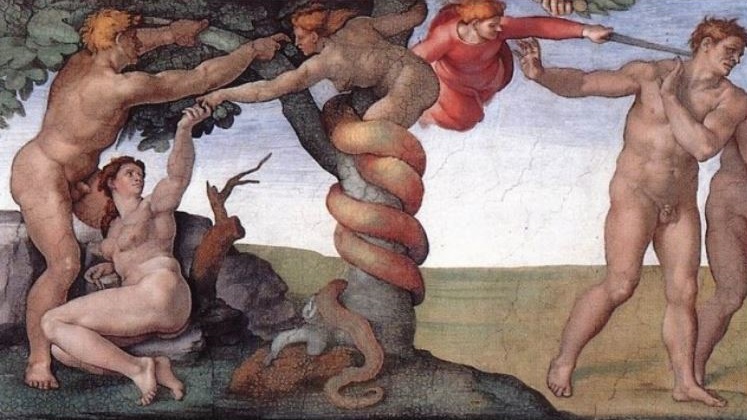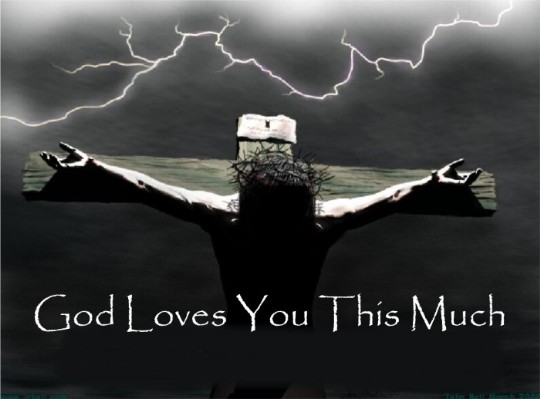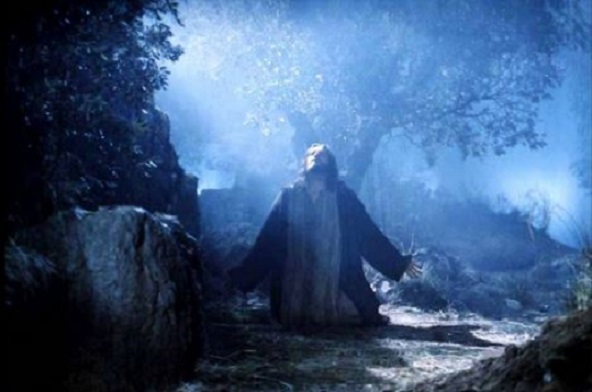Mark 1:12-15
The Spirit drove Jesus out into the desert,
and he remained in the desert for forty days,
tempted by Satan.
He was among wild beasts,
and the angels ministered to him.
After John had been arrested,
Jesus came to Galilee proclaiming the gospel of God:
“This is the time of fulfillment.
The kingdom of God is at hand.
Repent, and believe in the gospel.”
Today is the first Sunday of Lent, a season observed by Christians in imitation of Jesus who prepared Himself for His public ministry in 40 days in the desert.
During Lent, we fast and pray to prepare for Holy Week — the week that culminated in Our Lord’s crucifixion and resurrection.
We are told that the incarnation and crucifixion of the Second Person of the Triune Godhead were because of the fall of our first parents, Adam and Eve.
That fall is a mystery wrapped in a conundrum for, having everything in that bucolic first garden, including and especially the unimaginably sublime gift of seeing and conversing with the Creator (“Then the man and his wife heard the sound of the Lord God as he was walking in the garden in the cool of the day” –Genesis 3:8), they still chose disobedience and betrayal.
All because of their sin of grandiose narcissism — of wanting to be “like gods,” so as to determine for themselves “what is good and what is evil” although Adam and Eve already knew right from wrong. As the Book of Jeremiah 31:33 says, when God created humans, He placed His law within each of us, written in our very hearts:
[D]eclares the Lord: I will put my law within them, and I will write it on their hearts. And I will be their God, and they shall be my people.
But our first parents wanted to be their own gods, that is, with their own notions of right and wrong, which is nothing other than a contravention of the First Commandment (“You shall have no other gods before me.” –Exodus 20:3). Another way to say “wanting to be their own gods” is “Do as thou wilt” — the motto of satanist Aleister Crowley and the church of Satan, and the zeitgeist of our corrupt time.

That first sin by our first parents was so cataclysmic that it fundamentally changed the natural order of the world.
A door was opened to chaos: henceforth a price must be paid for being human. Where once was joy and ease, there would be banishment, toil, pain, hardship, sickness, disease, and eventual death (“with painful labor you will give birth to children“; “by the sweat of your brow”; “for dust you are and to dust you will return”). Humankind’s relation with other creatures and the physical environment turned askew as “visible creation has become alien and hostile to man”.
So cataclysmic is the breach that human nature itself became perverted. Henceforth, all of Adam’s progeny would be born with the stain of Original Sin — tinder for sin (fomes peccati) with an inclination to evil. As St. Anselm lamented:¹
I fell before my mother conceived me. Truly, in darkness I was conceived, and in the cover of darkness I was born. Truly, in him we all fell, in whom we all sinned. In him we all lost.
Wrongs require restitution.
The dictionary defines “restitution” as reparation made by giving an equivalent as compensation for loss, damage, or injury caused; indemnification.
So immense was our first parents’ Fall that no man could make amends. Only God Himself, in the person of the Son, could make restitution — by becoming incarnate, only to be tortured, to suffer, and to die on a cross.

That also is a mystery.
Why must it take God Himself to become incarnate in mortal flesh, so as to be tortured and executed in the cruelest method reserved by the Roman Empire for the worst criminals?
This is the answer from the great theologian, St. Thomas Aquinas:²
No mere man could have made satisfaction for the whole race. Yet man owed the debt that had to be paid. Only God could pay the debt, and God did not owe it. Hence it was magnificently right that the payer of the debt, the Redeemer, should be both God and man….
The Incarnation was necessary for man’s salvation. It was not absolutely necessary, for God is almighty, and he could have restored fallen man in other ways. But it was relatively necessary, that is, necessary in relation to the need of bringing redemption to man in the most noble, effective, and admirable way.
How? St. Thomas explains, by:
- Being a role model, showing man “the perfect example for good works” and, in so doing, advances man in virtue, enlivens his faith, strengthens his hope, and enkindles his charity. In other words, Jesus shows us how we can become better people, how we can be holy. As St. Augustine said, “God was made man that man might be made God.”
- Teaching humankind about evil: “The Incarnation keeps man from evil; …makes him despise the devil; …makes him understand the degrading effect of sin; teaches him to look humbly to Christ and not to be presumptuous; instructs him in the heartening truth that the satisfaction made by God Incarnate releases him from slavery to sin.”
In remembrance of how Christ our Lord was tortured, suffered, and died for our sins, we are asked to make small sacrifices during Lent via:
- Abstinence: Refrain from eating meat on the Fridays of Lent for all age 14 and older. Why Friday? – because Jesus died for our sins on (Good) Friday.
- Fasting: Eating one full meal and two small meals for age 18 through age 59, exempting the elderly and those with special dietary needs or medical conditions that require a greater or more regular food intake.
- Surrender something that gives us pleasure, and/or do something good that we don’t ordinarily do.
Most of all, thank Jesus and tell Him that you love Him with your whole heart, your whole soul, your whole mind, and with all your strength.
May the love and peace of Jesus Christ our Lord be with you,
~E
Footnotes:
¹St. Anselm: Basic Writings, translated by S. N. Deane (La Salle, Illinois: Open Court, 1961), p. 24.
²Msgr. Paul J. Glenn, A Tour of the Summa (TAN Books, 1978), p. 311.





